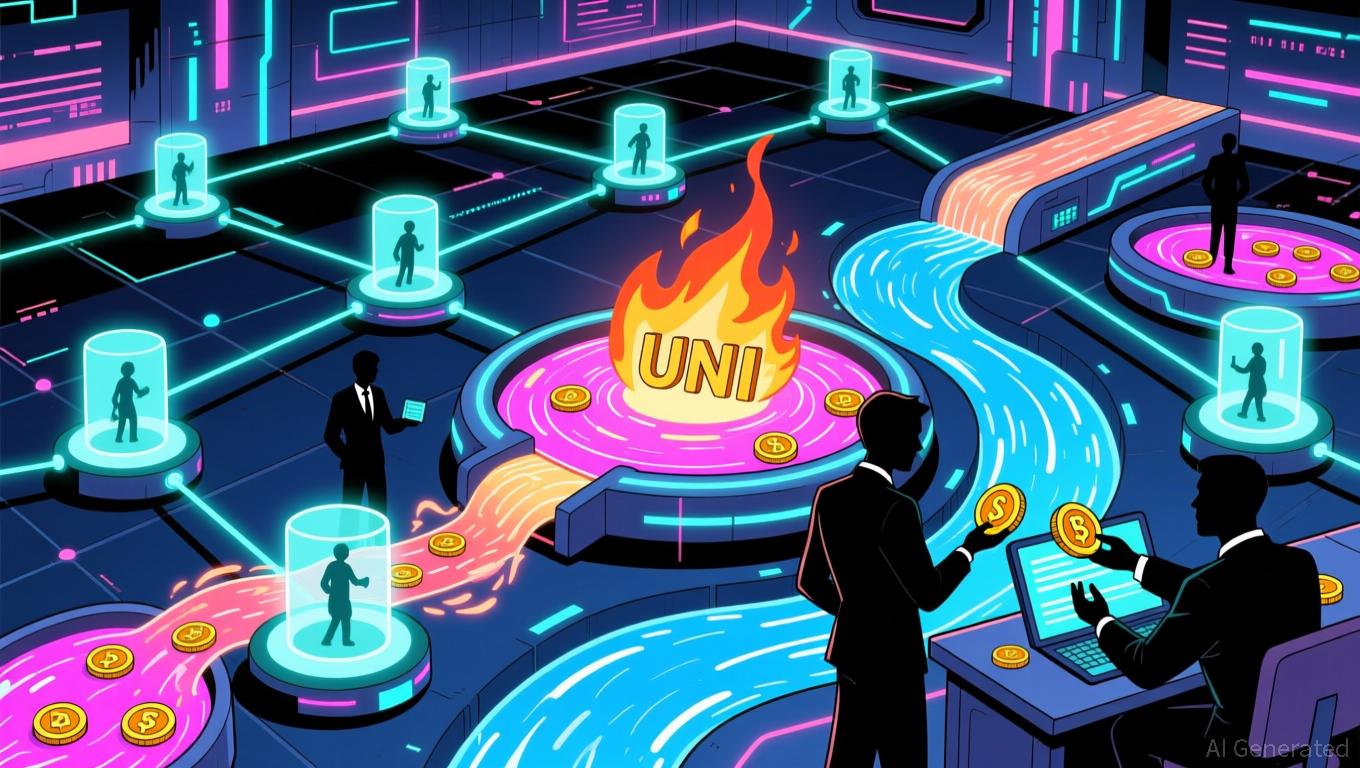Uniswap News Today: Uniswap’s UNIfication Brings Ecosystem Incentives Together for a Lasting DeFi Landscape
- Uniswap proposes "UNIfication" to overhaul tokenomics, governance, and position itself as the default tokenized asset platform. - The plan includes burning 100M UNI tokens, activating protocol fees, and introducing fee discount auctions to boost token value. - Governance consolidation under Uniswap Labs aims to streamline operations while avoiding SEC scrutiny by dissolving the nonprofit foundation. - Market analysts highlight potential price stability and ecosystem alignment, though major stakeholders l
Uniswap, a top decentralized exchange (DEX), has introduced a major governance initiative called "UNIfication." This plan seeks to revamp both its tokenomics and governance framework, aiming to establish Uniswap as the primary hub for tokenized assets. Announced on November 10, 2025, the proposal features the activation of protocol fees, a large-scale burn of
The plan includes a retroactive burn of 100 million UNI tokens from the treasury—matching what would have been destroyed if protocol fees had been in place since Uniswap’s launch. Furthermore, a share of trading fees from both the mainnet and Unichain, Uniswap’s layer-2 network, will go toward a UNI burning mechanism. The team also revealed Protocol Fee Discount Auctions (PFDA), where traders can compete for fee reductions, further increasing the burn rate by capturing maximal extractable value (MEV)

The governance update also tackles regulatory issues. Shutting down the Uniswap Foundation fits with broader DeFi strategies to avoid SEC scrutiny, as the agency has increasingly labeled decentralized projects as centralized. By merging operations under Uniswap Labs, the team hopes to simplify governance while keeping a nonprofit orientation
Analysts note that this proposal could help stabilize UNI’s value and boost its usefulness. “The UNIfication initiative aligns interests among users, liquidity providers, and holders, paving the way for a more resilient system,” commented a DeFi expert. Still, there are hurdles, such as resistance from major investors like a16z, who have previously opposed similar fee-sharing plans.
The proposal is now pending a vote by Uniswap’s decentralized autonomous organization (DAO). If it passes, it could reshape the DEX’s influence in the crypto space, leveraging its 6.1% share of total DEX trading volume to further strengthen its leadership
Disclaimer: The content of this article solely reflects the author's opinion and does not represent the platform in any capacity. This article is not intended to serve as a reference for making investment decisions.
You may also like
Crypto Funds See $1.17B Weekly Outflows, CoinShares Reports
Quick Take Summary is AI generated, newsroom reviewed. Crypto funds saw $1.17 billion in outflows, marking the second straight week of withdrawals. Bitcoin and Ethereum funds recorded the largest losses at $932 million and $438 million, respectively. Solana continued its positive streak with $118 million in inflows, totaling $2.1 billion over nine weeks. U.S. investors led the selling ($1.22B outflows), while Europe (Germany, Switzerland) saw modest net inflows.References According to CoinShares, digital a
Uniswap News Today: Uniswap Activates Fee Switch, Burning Tokens to Boost Holder Value
- Uniswap activates a fee switch to redirect trading fees to UNI tokenholders, boosting UNI's price by 38% to $9.70. - The proposal burns 1 billion UNI (16% of supply) and creates a "token jar" mechanism to reduce circulating supply and incentivize burns. - This deflationary strategy, combined with a merged governance structure, aims to generate $2B+ annual revenue while solidifying DeFi dominance.
Bitcoin OGs Turn to ETFs for Smarter Tax and Investment Gains
Bitcoin Surges Past $106K as US Shutdown Fears Fade